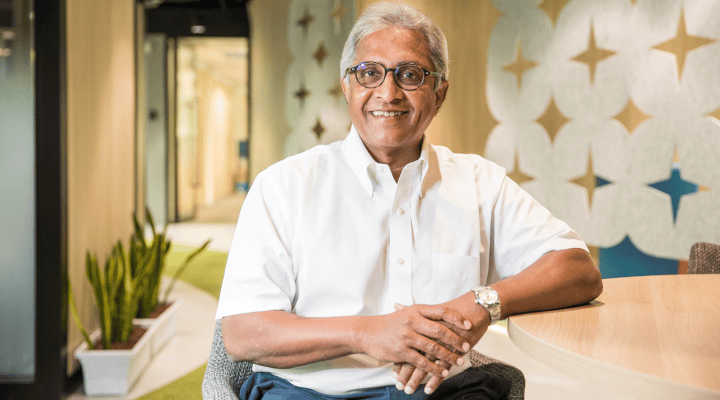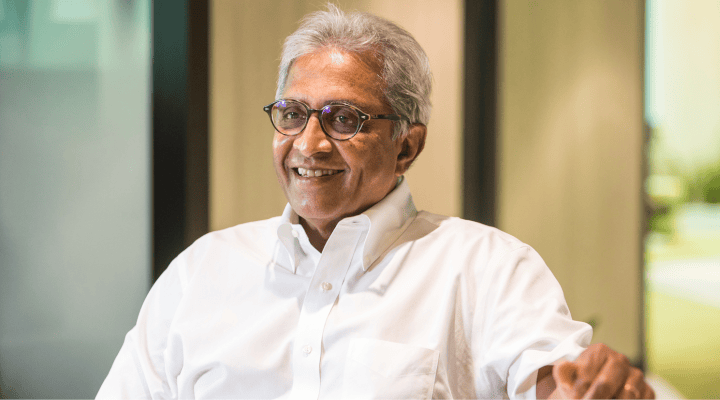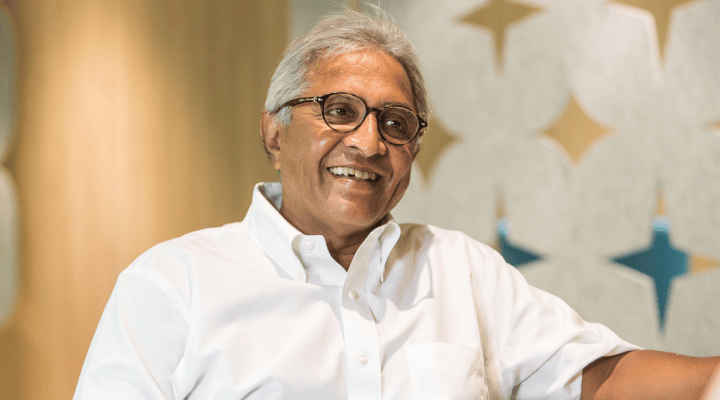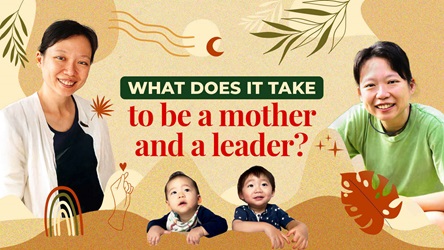Communications Is About Meeting People Where They Are

When he first took on the Chief of Government Communications role in 2012, Mr Devan knew very little of what to expect, he admits.
Brought in to coordinate the Government’s public communication efforts and lead the Information Service to enhance its network across the public sector, Mr Devan had quite the task ahead of him.
But he was not apprehensive of the challenges ahead. “The fact that I wasn’t from the Civil Service probably helped, because I didn’t know enough to be afraid,” he says. “I didn't know enough to be hesitant about some of the things I wanted to do… I hadn’t learnt from experience to fear certain things.”
He looks back with gratitude at the support he received from the many Permanent Secretaries he worked with, who Mr Devan said “probably protected him from the worst mistakes” and had his back as he set about on his work.
In preparing for this interview, Mr Devan had flipped through one of his many notebooks from his earlier days in the MCI. He found “six or seven” goals jotted down that have since been achieved: establishing a media operations team, having a group of speechwriters, setting up data collection and analysis capabilities, and so on.
He is particularly proud of how the Government communications community has grown and added value to the Service. He pointed to the quality of leadership within the MCI’s Information Service and the wider communications community beyond the Ministry, such as the press secretaries. “They have grown into very substantial officers. And that gives me an enormous satisfaction.”

Earning and Measuring Trust in a Crisis
Growing this community network has allowed the Government to do its day-to-day work well throughout the years. It also became an invaluable asset during the COVID-19 pandemic.
“I do not know where we would be if we had not built up the communications apparatus to the extent that we did before COVID-19 struck,” he reflects.
By early 2020, many of Mr Devan’s plans had come to fruition. The Public Service had built up its capacities in content production, marketing communications, data collection and analytics. The latter two were of the utmost importance, he points out. Through the pandemic, these data capabilities enabled the Government to identify information gaps and find out what channels were effective in reaching people – leading to much more efficient communications.
More importantly, it built trust. “We instinctively recognised that as a Government, the most important thing in a public health crisis was trust – and so we spent a huge amount of time and effort to put out as much information as possible, as quickly as possible, to the public.”
Go Where People Are and Speak Their Language
Active listening is essential for communicators, especially in this “fractured media age” with more communication channels than ever before.
Successful communication requires more than access and transparency, Mr Devan adds. It needs to reach people where they are, and speak to them in ways that they can connect with.
Whether this means pivoting from traditional media to WhatsApp or TikTok, it is a necessary evolution. “The necessity for learning, innovating and experimenting has never been so important.”
While he thinks the Public Service is now in a better place to learn, adapt and innovate, there remains more to be done. “I think we have a long way to go in applying operations technology, using artificial intelligence and all sorts of other things,” he says.
With that in mind, Mr Devan set up the Academy of Public Communications and Engagement in the hopes that it will provide more opportunities for public officers to acquire new competencies. A structured competency framework will set out career progression and training schemes for clearer career pathways.

The Value of Diverse Opinions and Failure
Besides this institutional effort to groom the next generation of communication officers, Mr Devan wants people to learn from doing – be it through developing strong personal networks, or from trying new things and embracing failure.
He enjoys working with people who “talk back”, challenge him or throw out the odd curveball. It is more rewarding, he says, when officers feel empowered to voice their opinions, take the initiative to act, or feel comfortable making “outrageous” suggestions.
Indeed, throughout this interview, Mr Devan jokes about being 69 years old and having a certain reputation among MCI officers: “If he doesn’t like it, it will do well.” He was sceptical about the Phua Chu Kang COVID-19 vaccination video, which he says he disliked, but which ended up resonating with audiences and going viral internationally.
To him, the willingness to experiment is where innovation truly lies. And leaders must be there to support their staff should they fall short.
“The most important thing that leaders can do is to protect their people when they fail. Because there can be no innovation without people occasionally failing,” he says. “And if you were to punish people every time they fail, you're not going to have a growing innovative organisation.”

To get more stories like this, subscribe to the Challenge Telegram channel.
- POSTED ON
Aug 22, 2023
- TEXT BY
Sheralyn Tay
- PHOTOS BY
Norman Ng









